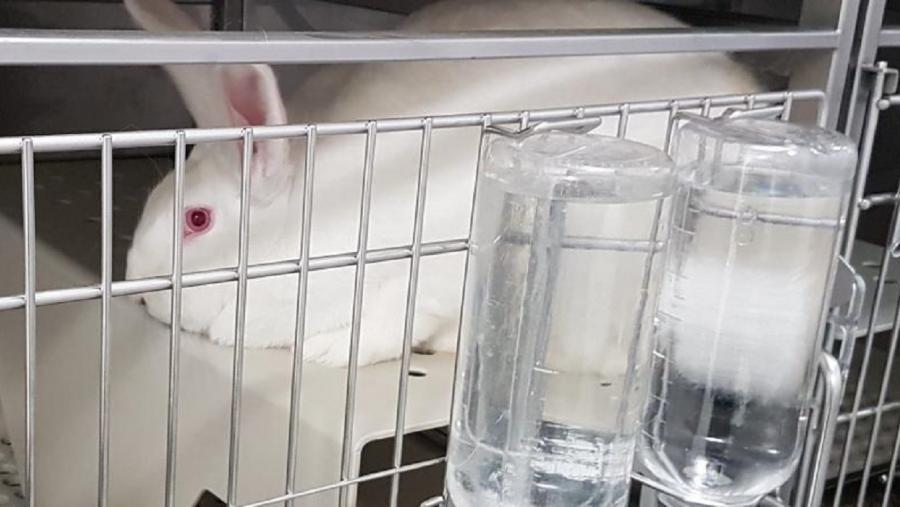Rabbits on Campus Terra are healthier and drug-free

The pandemic we are still experiencing has put many new ideas and approaches on the table, such as the One Health concept. This approach considers that the health of human beings, animals and the environment are all connected and related to each other in a triangle.
On this path towards a welfare state where all three parties benefit and ‘feed’ from each other, the Faculty of Veterinary Medicine of the USC’s Campus Terra is participating in the national project Innovative Techniques for the Reduction of Antibiotic Use in Rabbit Farming (TIRAC). This action, which includes Galicia, Madrid and Navarra, is promoted by a supra-regional operational group led by De Heus Nutrición Animal.
Thus, collaboration is key in this R&D&I initiative, so the groups of Animal Medicine (ImedA), Pathological Anatomy (GAPAVET), Animal Health (Invesaga) and Hygiene, Inspection and Control of Veterinary Foods (Lhica) from the Lugo campus are not walking alone. Feuga, Porto-Muíños and the Technical University of Madrid are also part of the consortium that is promoting the initiative.
Its goal is to replace the antibiotics used to treat digestive problems that affect captive-bred rabbits used for meat by applying other innovative techniques based on the study of nutritional strategies. It focuses on formulating feed with a low level of protein and a moderate percentage of soluble fiber by incorporating macroalgae or their extracts.
To achieve this innovative result, which guarantees animal health and improves the profitability of rabbit farms, this action has a budget of 490,000 euros, 80% of which is funded by the European Agricultural Fund for Rural Development (EAFRD), while the remaining 20% is put in by the Ministry of Agriculture, Fisheries and Food under the 2014-2020 National Rural Development Programme.
The search for better quality meat, with a healthy lipid profile, a higher content in minerals and a higher antioxidant potential —along with the enhancement of the algae production sector— make this Campus Terra research project walk not on two or four legs, but on the sustainability of One Health.
